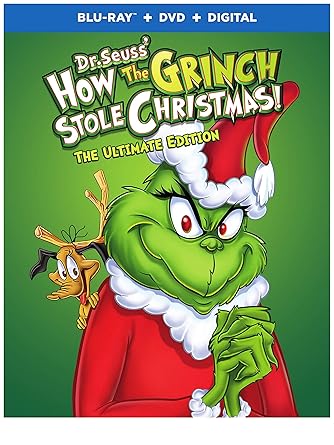Okay, not an episode of THRILLER, but Boris Karloff as the Grinch Who Stole Christmas. This is one of those Christmas classics that everyone my age grew up watching, and having Karloff be in an animated kid's film filled with songs is just... weird. William Henry Pratt (Karloff) was the host of THRILLER but also a legendary star of horror movies since the 1930s. He played Frankenstein's monster! He played The Mummy! And in some *great* Val Lewton horror movies like BEDLAM and ISLE OF THE DEAD (say that outloud). He was so famous as a horror actor, he starred in ABBOTT AND COSTELLO MEET THE KILLER, BORIS KARLOFF. In the early sixties he starred in AIP's COMEDY OF TERRORS with Peter Lorre and Vincent Price. This guy was SCARY! So to put him in a cartoon aimed at kids was genius.
Here's the big song about his character...
Sorry - no longer ai!
And here's part of the ending...
Jim Carrey is no match for Karloff. You wonder who had the dumb idea to remake this as a live action movie, since nothing could be better than the original. They always seem to remake the great films (so that the remake seems terrible in comparison) instead of remake those films that had potential but didn't quite work (where the remake might be an improvement).
Bill
Karloff as Santa?

Buy the DVD.

